Chelsea Flower Show: Maths, medicine and 'a little madness'
- Published
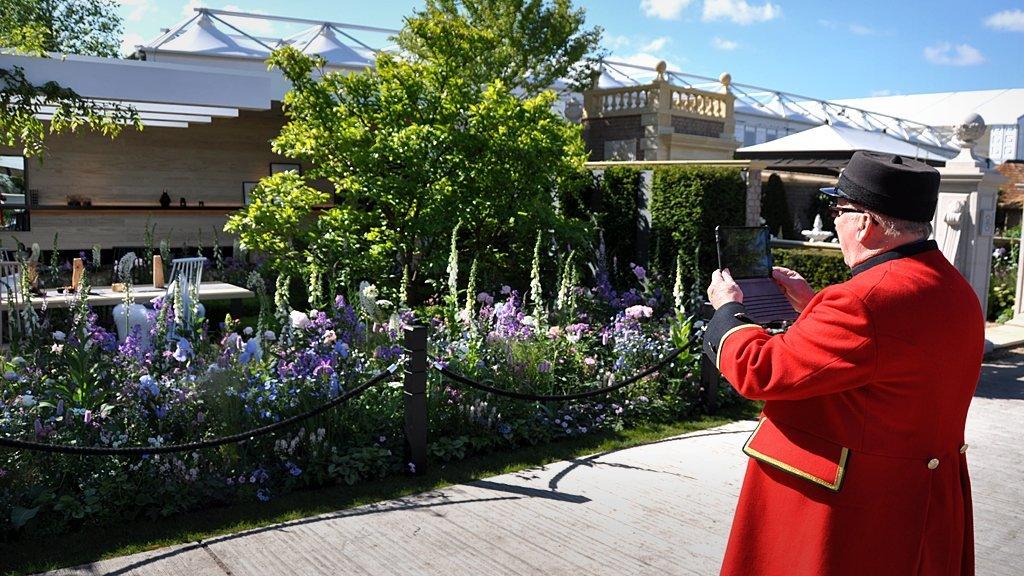
Garden designers and their teams stood proudly - albeit a little nervously - as the judges began their rounds at the Chelsea Flower Show.
If they needed a little calm, the gardens they have created - many on themes of peace and tranquillity - could have provided it.
Jekka McVicar, who designed A Modern Apothecary for St John's Hospice, says the garden is about health and wellbeing.
Everything in it - from rosemary and fennel to the sound of running water - can be good for body and mind, she says.
She spoke to doctors, carers and artists before creating the garden, which is about the "power of plants".
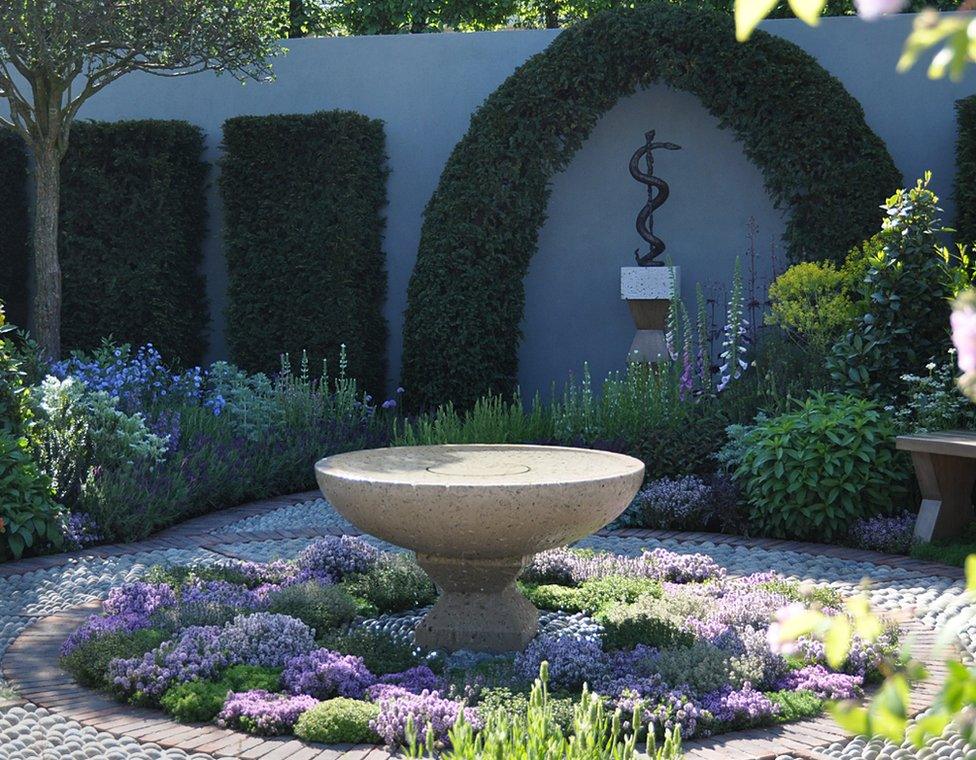
A Modern Apothecary will be relocated to St John's Hospice after the Chelsea Flower Show
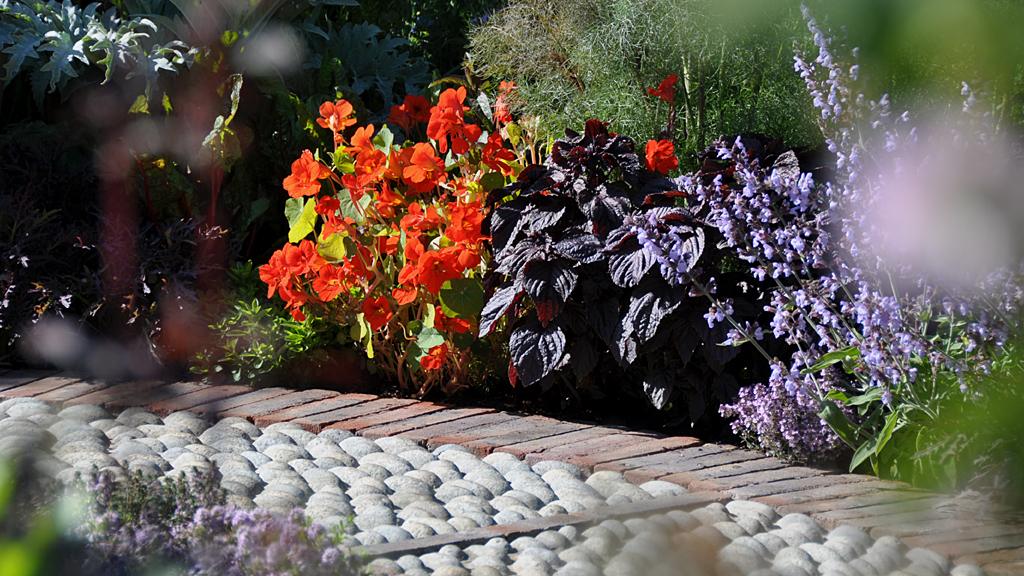
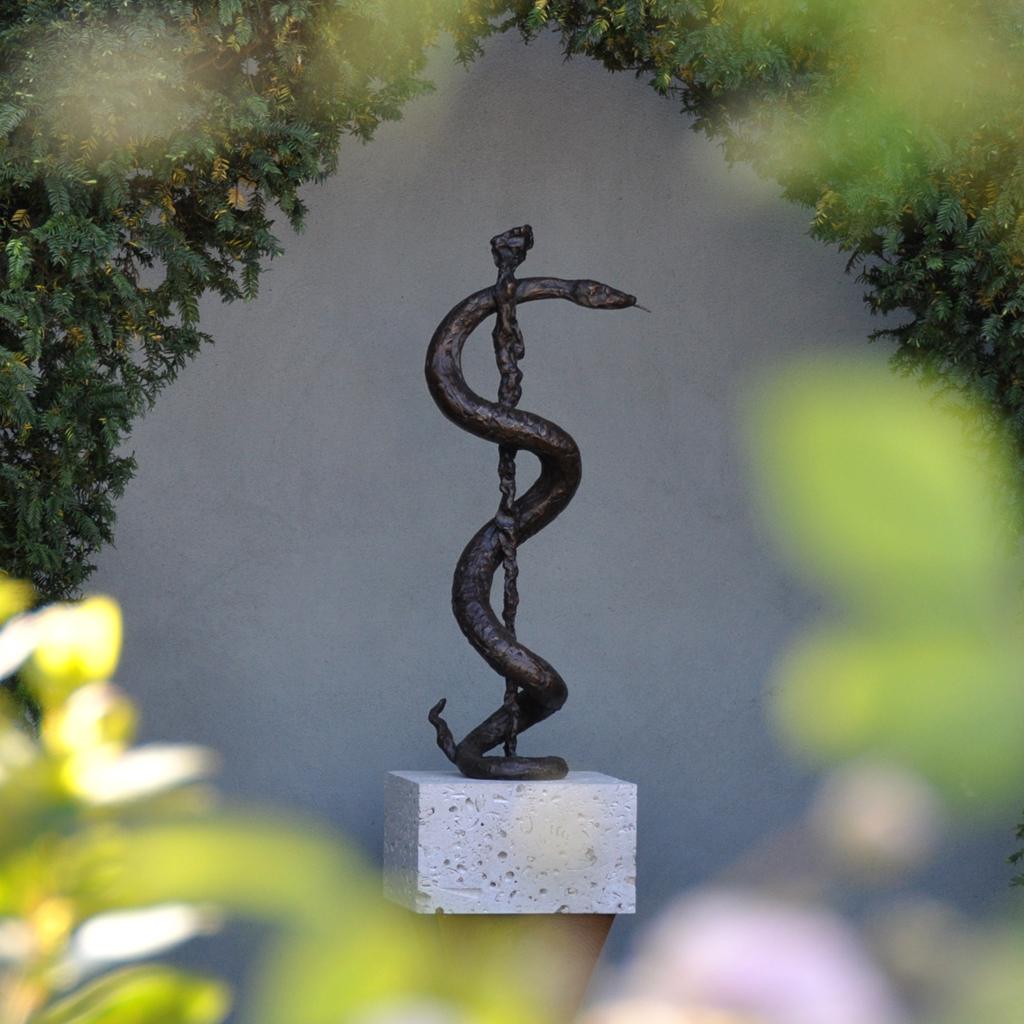
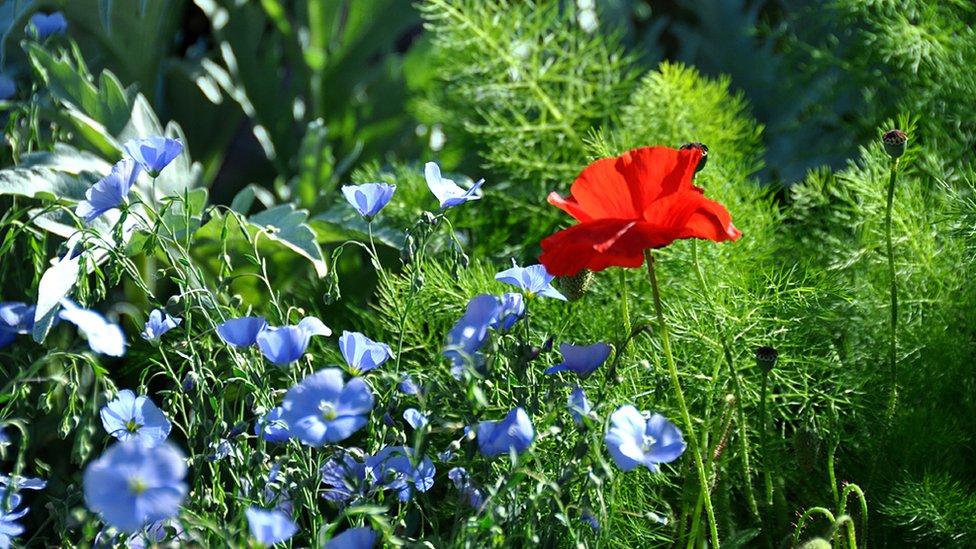
Jekka McVicar said she was "thrilled with the result" of her garden, which had been a "team effort"
Also focusing on health and healing is Paul Martin, creator of The Garden of Mindful Living for Vestra Wealth.
It is intended as a calm space for mindfulness and wellness in a busy city life, with soft colours that are "not jarring on the eyes".
There is plenty of green - a colour Mr Martin says has proven calming effects on children with ADHD.
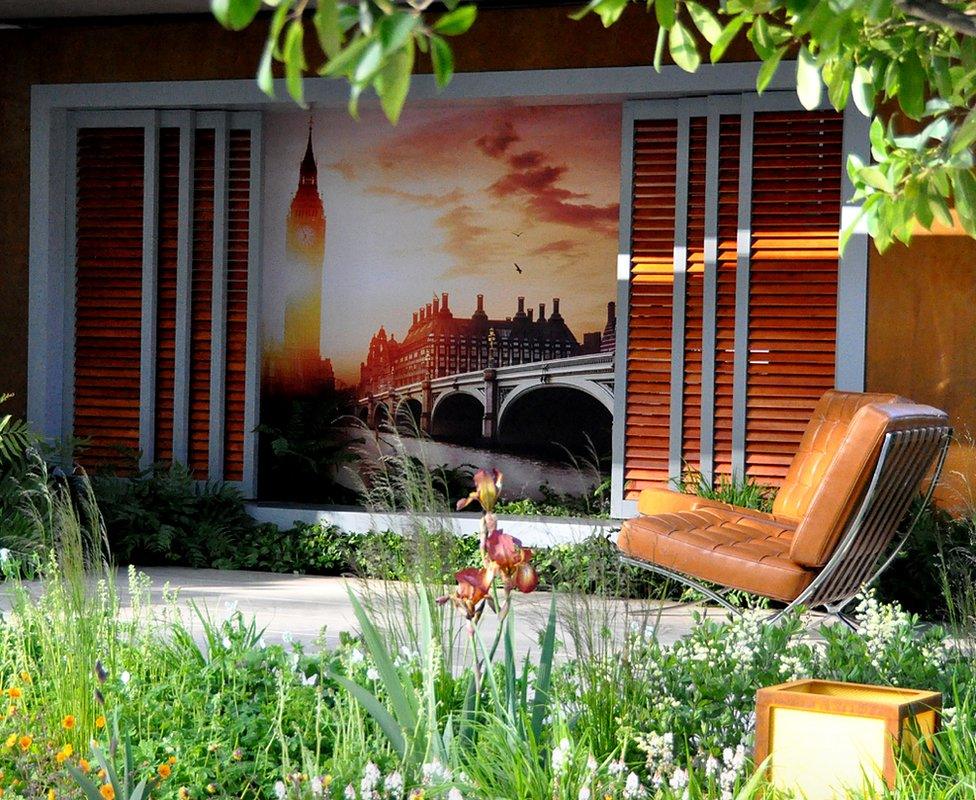
Paul Martin's garden is about finding a green retreat in the city
Some of the exhibitors at the Chelsea Flower Show demonstrate the tricks they use
'Colourful tapestry'
Matthew Wilson designed God's Own Country - A Garden for Yorkshire based on inspiration from York Minster's East Window, external, which is the largest single expanse of medieval stained glass in Britain.
"Trying to get something of that scale and presence and sheer power in a Chelsea garden is an interesting challenge," he says.
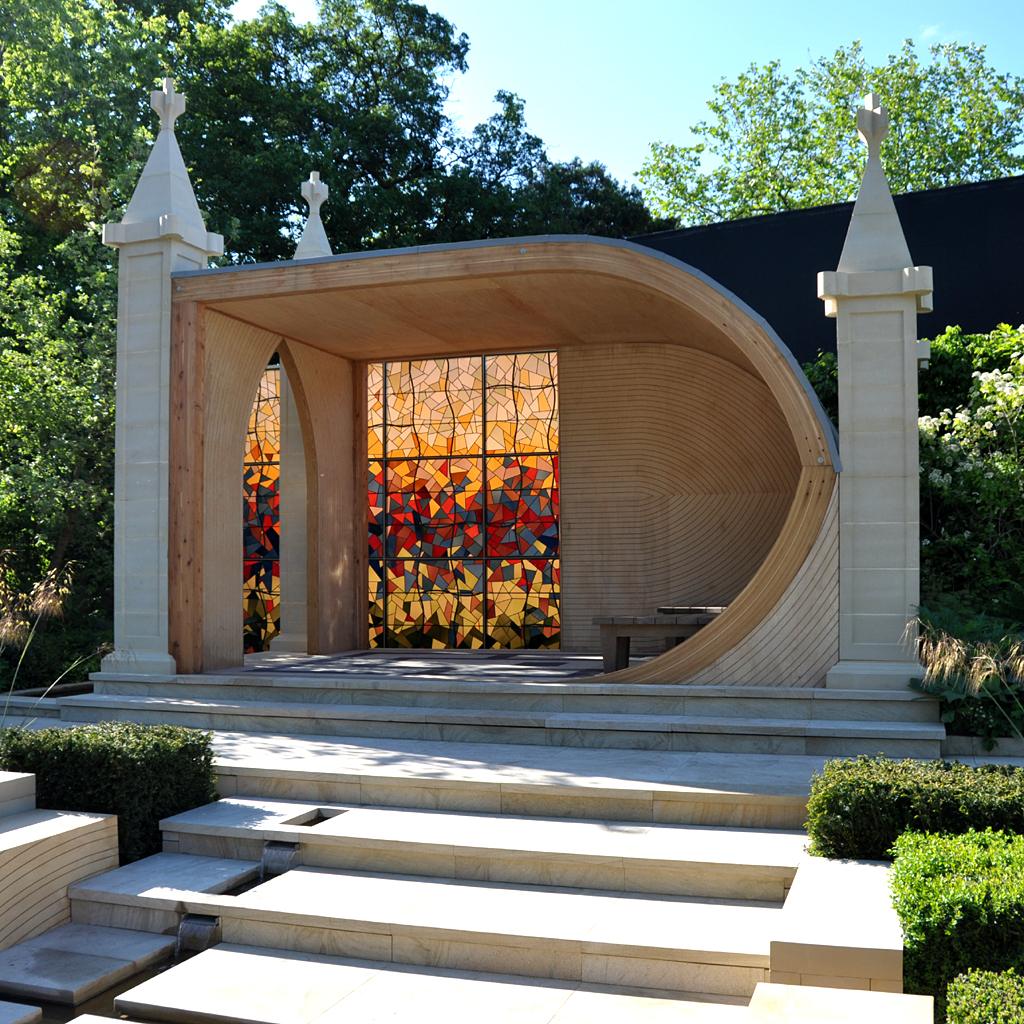
Matthew Wilson's Yorkshire garden contains a "contemplative area"
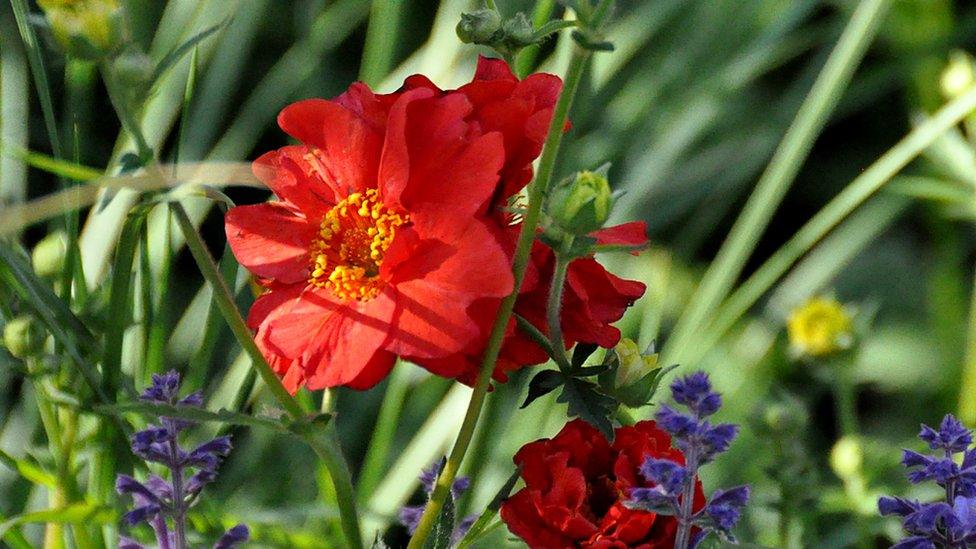
The colours of Matthew Wilson's garden are based on York Minster's East Window
He says he set about "deconstructing" all elements on the window's design and "putting them back together in a different order" in the garden, which is sponsored by Welcome to Yorkshire.
As well as a "colourful tapestry" of planting based on the window's colours, there is an arch laid on its side containing benches which point towards a "very calm, small cloister garden".
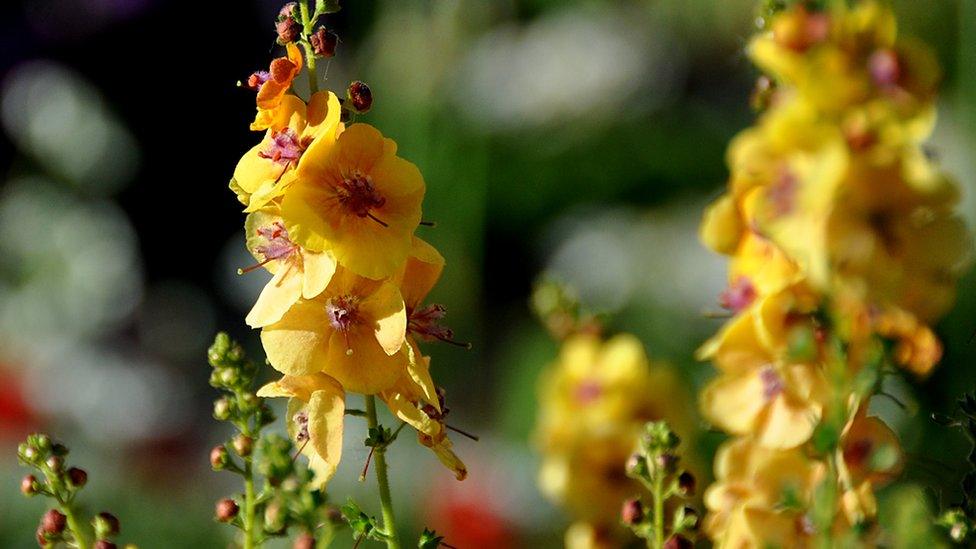
God's Own Country - A Garden for Yorkshire is one of 17 show gardens at Chelsea
Nick Bailey, designer of The Winton Capital Beauty of Mathematics Garden, says the concept is about "subtly highlighting the mathematics that underpins everything".
"No matter how wild something looks it's actually driven by algorithms and equations," he says.
A copper band runs through the garden, and on it are equations for processes including photosynthesis and cellular expansion.
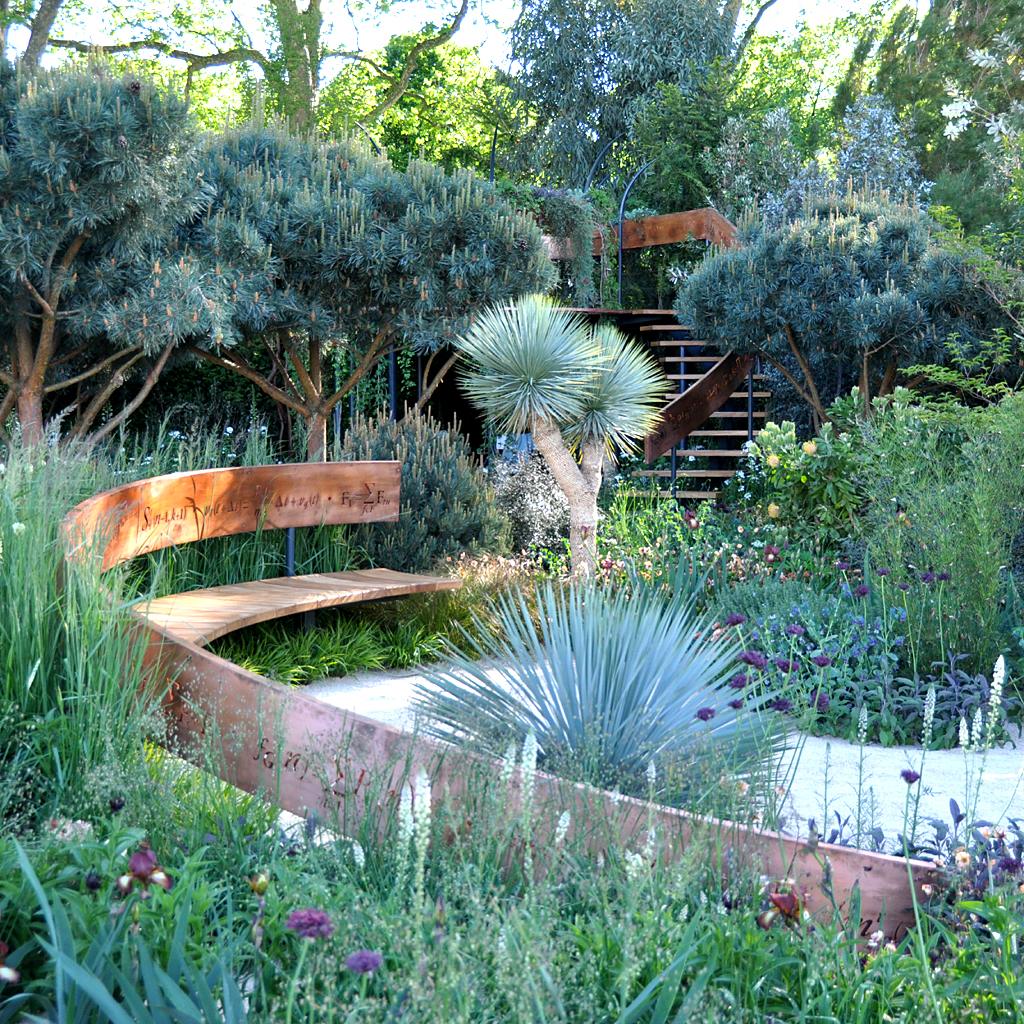
A copper band runs through the Beauty of Mathematics garden
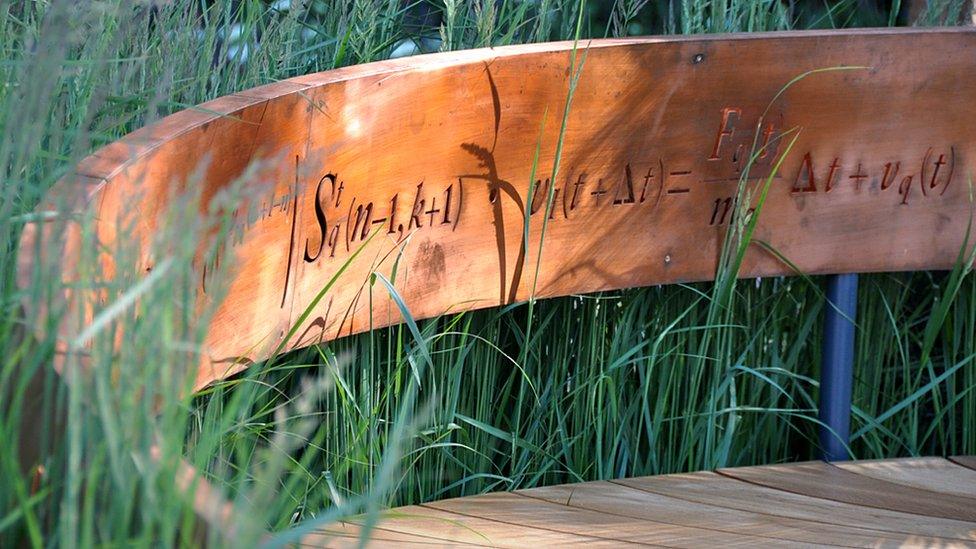
The band represents a stem, and as it winds through the garden - changing function from a bench to a banister to a planter - the planting thickens to reflect growth.
Diarmuid Gavin, who designed the Harrods British Eccentrics garden, says he mixed traditional themes with "a little bit of madness".
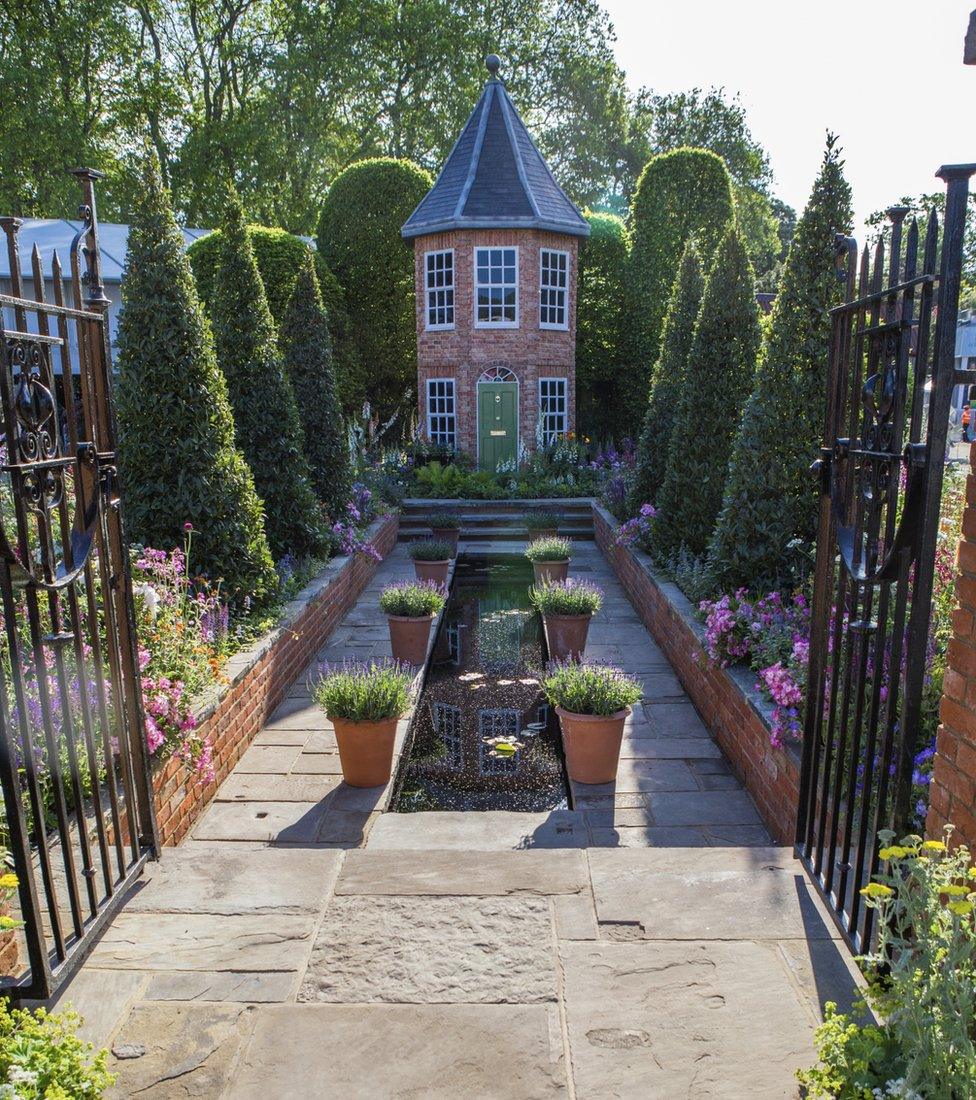
The trees lining the path in Diarmuid Gavin's Harrods British Eccentrics garden spin every 15 minutes
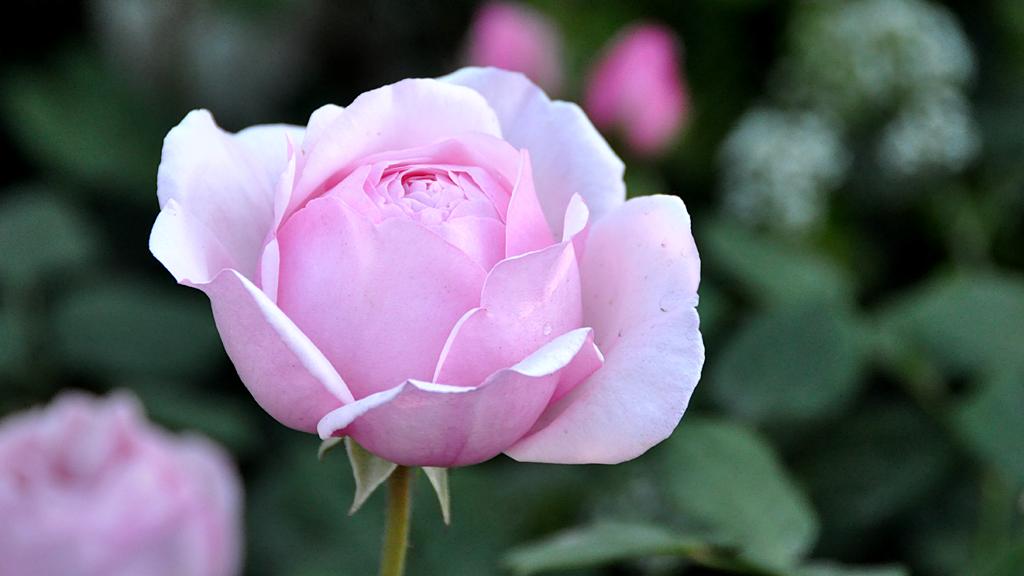
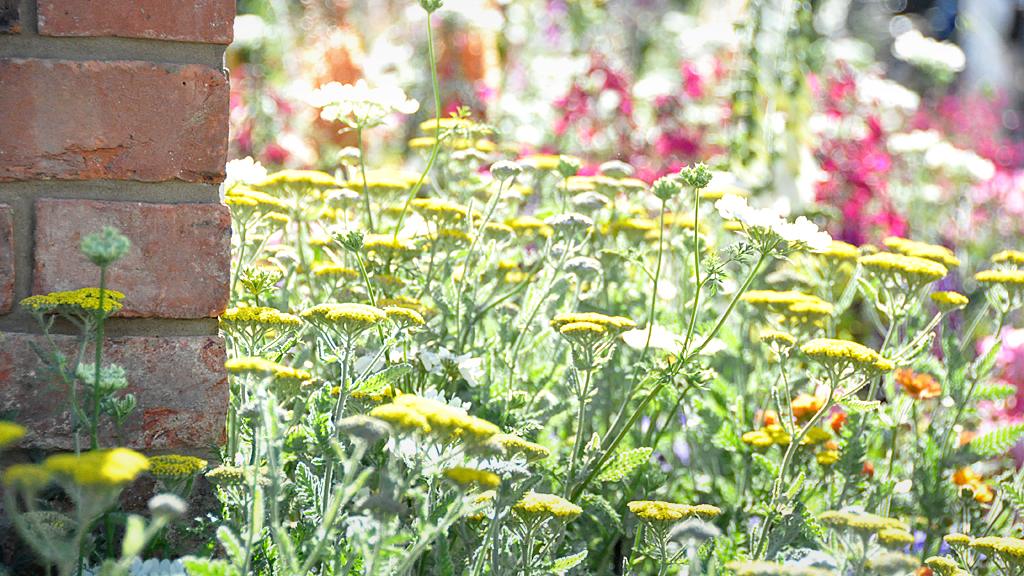
As well as "fireworks" of brightly coloured plants among more traditional planting, every 15 minutes the trees and one of the borders rotate and some bob up and down.
"I like to have a bit of fun and try something new," he explains.
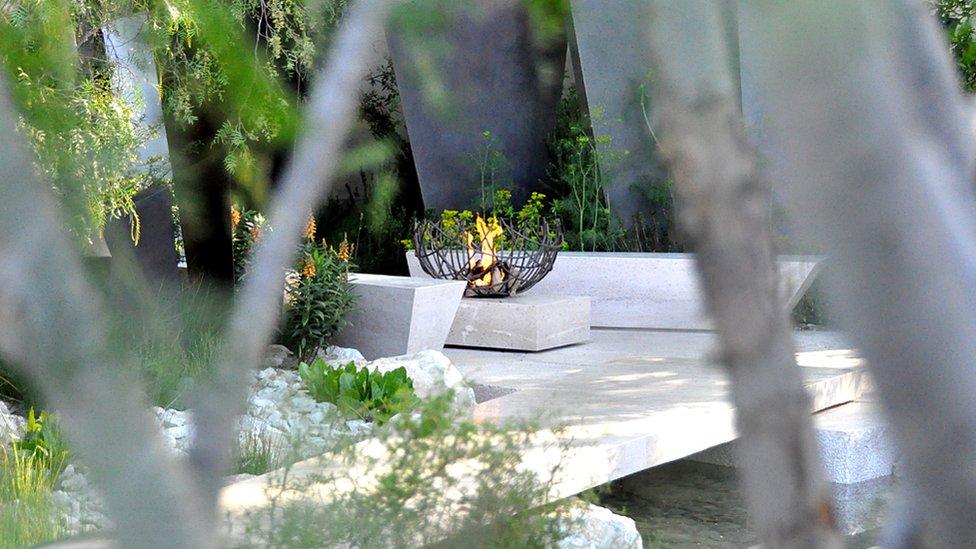
Andy Sturgeon designed the Telegraph Garden, intended as a "captured landscape"
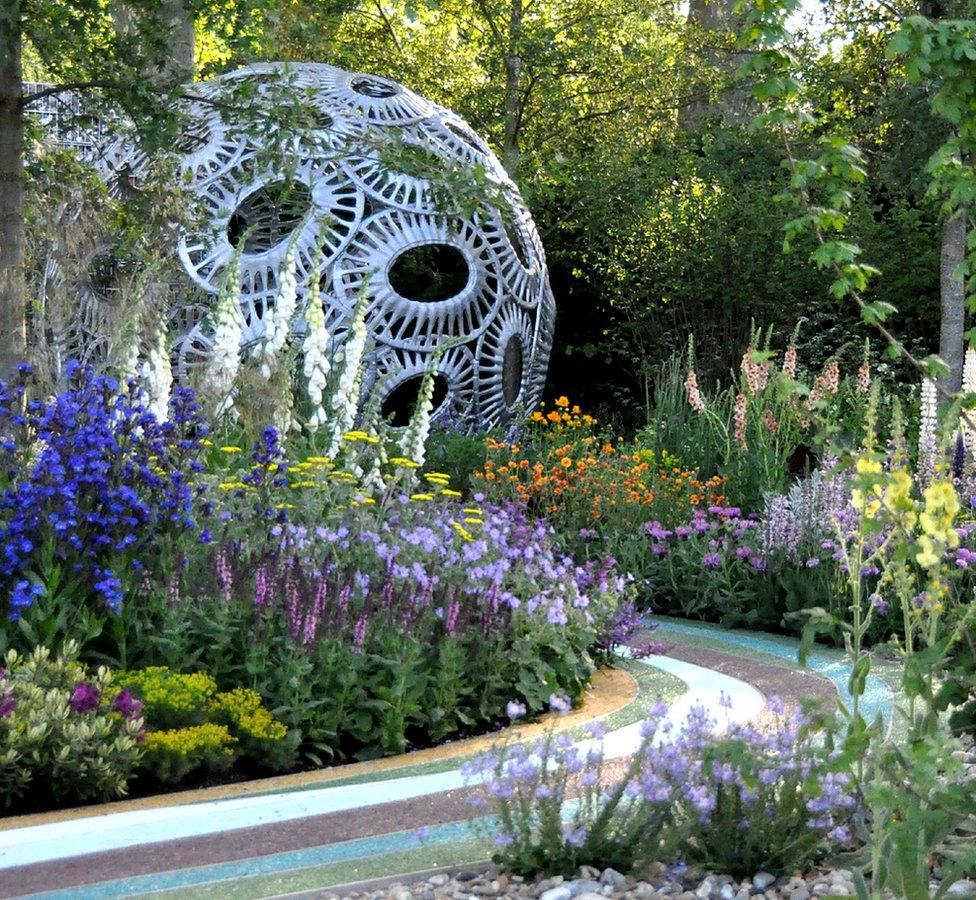
Brewin Dolphin - Forever Freefolk was designed by Rosy Hardy and invites visitors to "consider the fragility" of chalk streams
Garden designers and their teams - many in smart suits not typically worn for gardening - were busy watering, sweeping and making other last-minute adjustments on Monday morning before the arrival of the judges.
Some teams were on their hands and knees for these final preparations in the London sunshine.
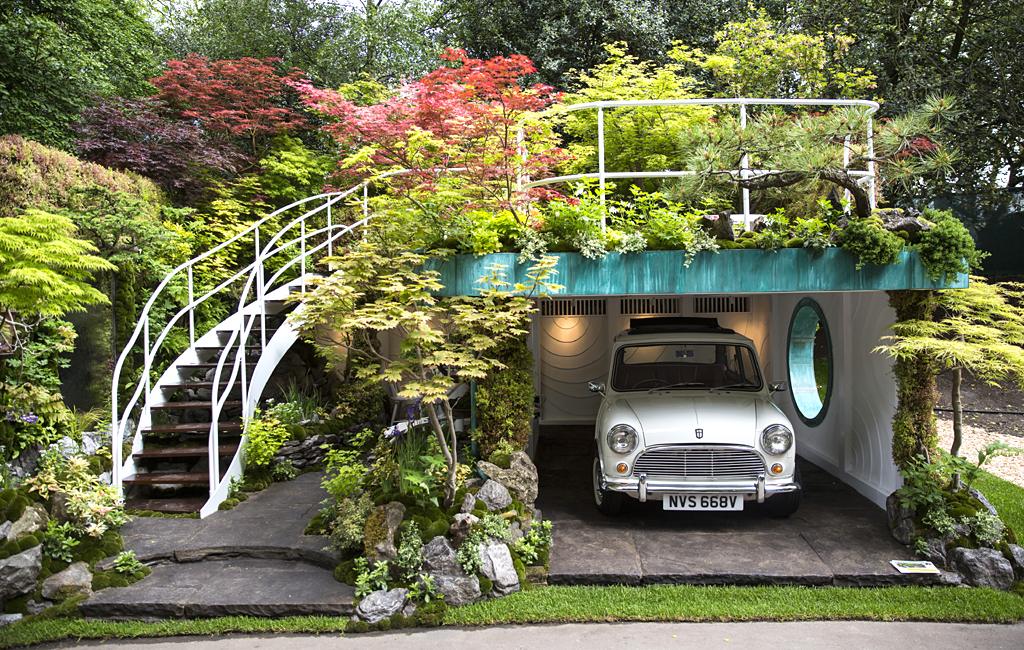
Senri-Sentei - Garage Garden was designed by Kazuyuki Ishihara
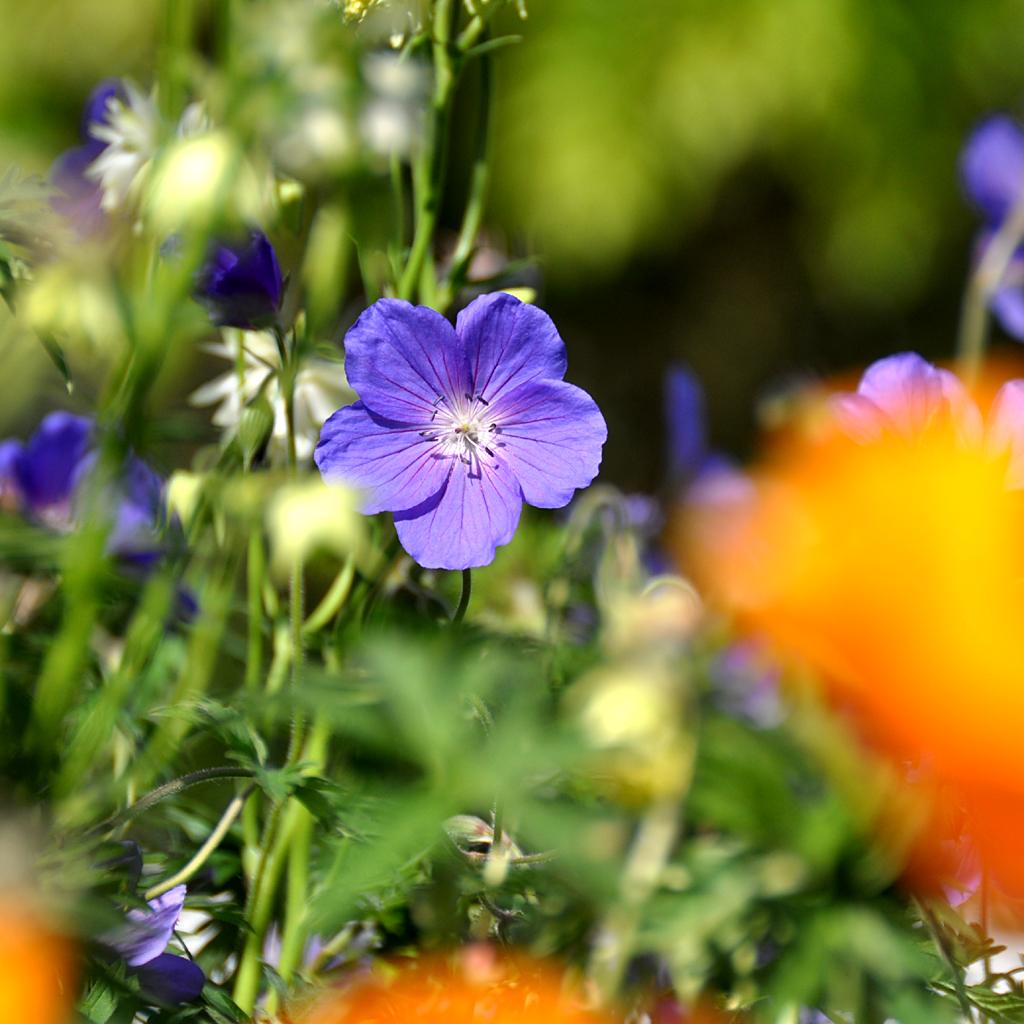
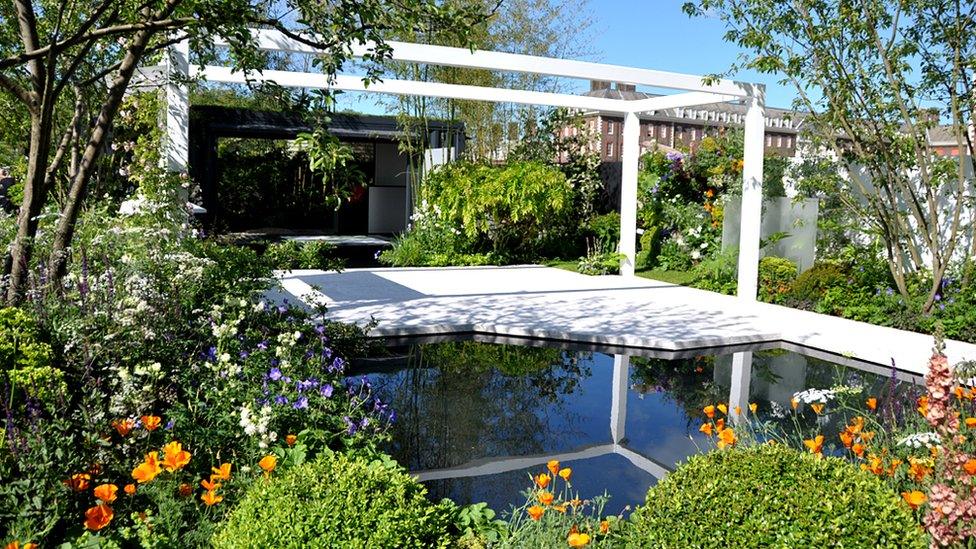
The Watahan East & West Garden was designed by Chihori Shibiyama and Yano Tea
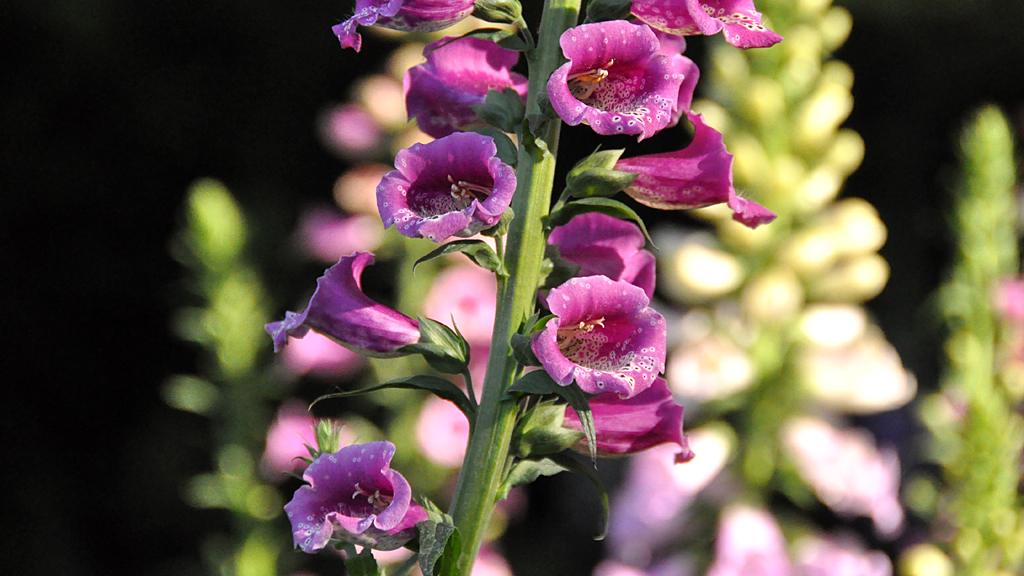
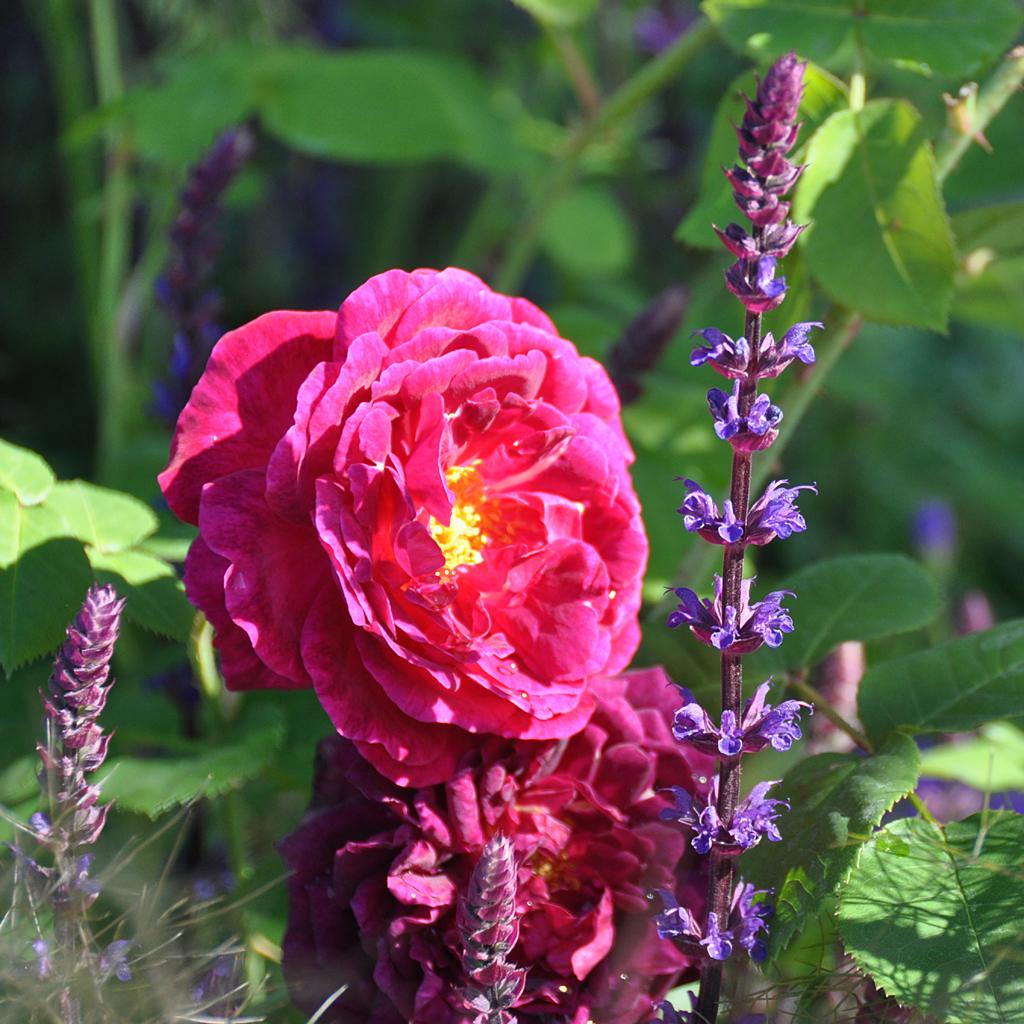
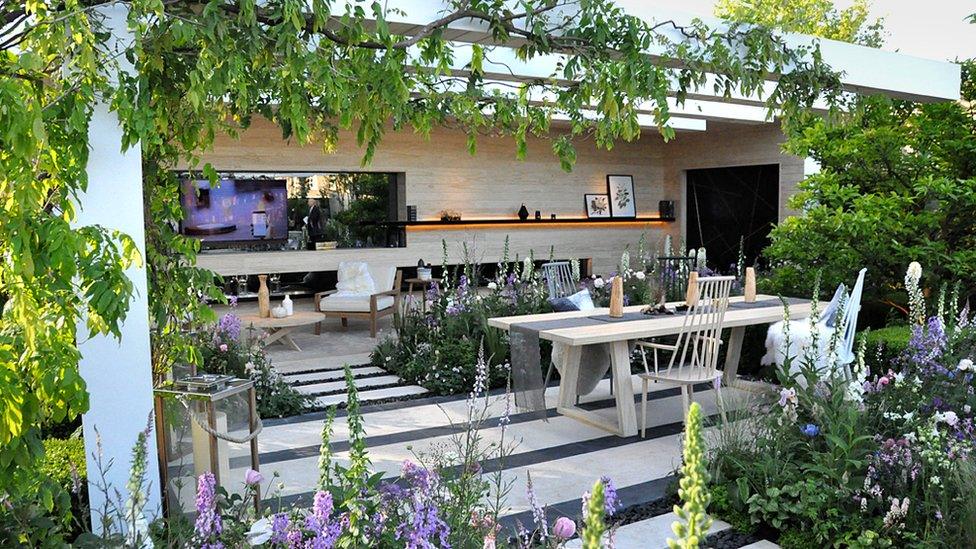
LG Smart Garden was designed by Hay Hwang and was inspired by the concept of "intelligent homes"
A field of 300,000 hand-crocheted poppies, external, which covers the space between the showground and the Royal Hospital Chelsea, was designed by Phillip Johnson, who won Best Show Garden in 2013.
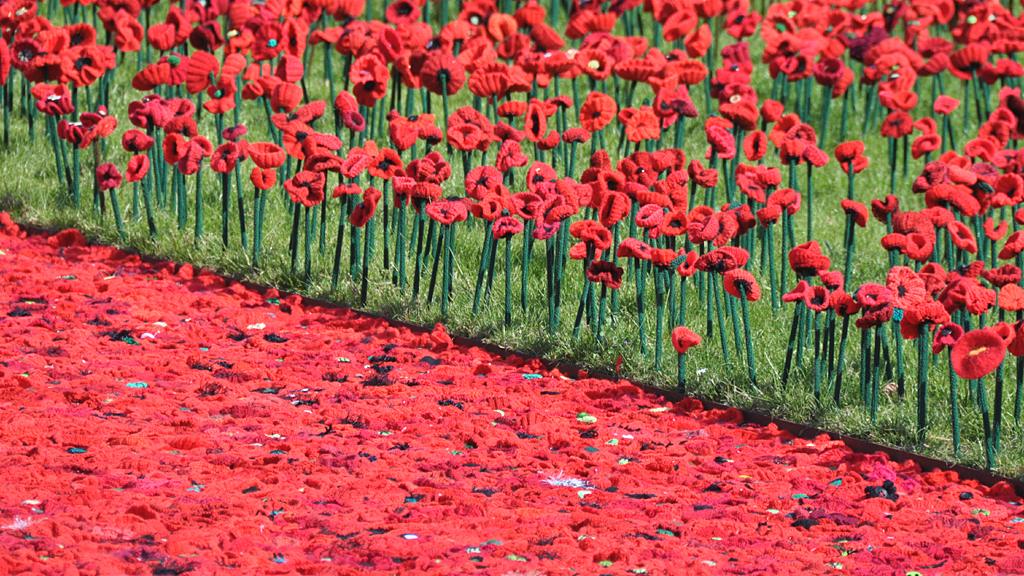
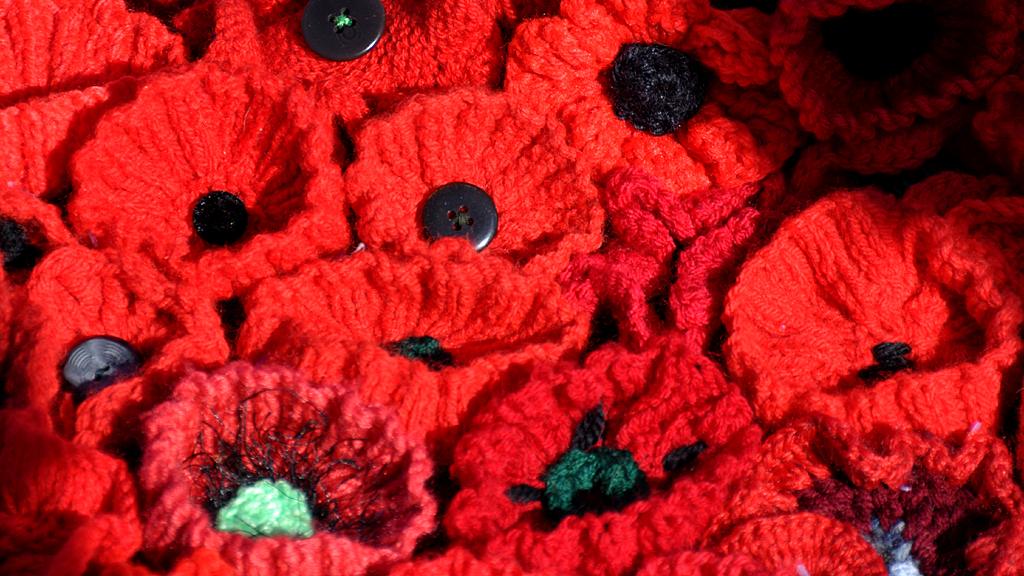
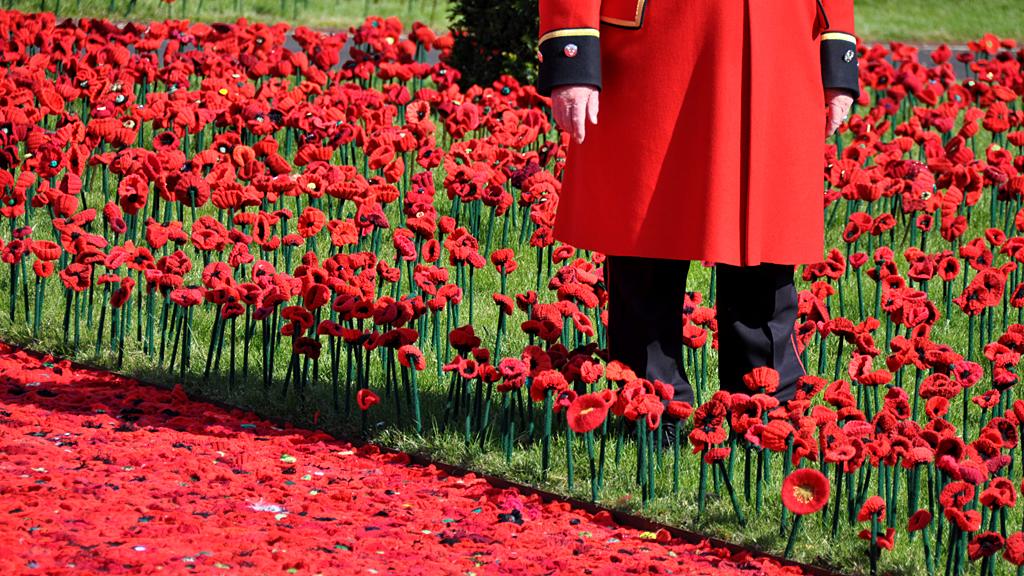
Chelsea Pensioners, who are all retired British soldiers, live at the Royal Hospital Chelsea
They are a tribute to those who served in all wars, and were made by "people from a range of cultures, and communities and ages, from two to 102 years old", the Royal Horticultural Society said.
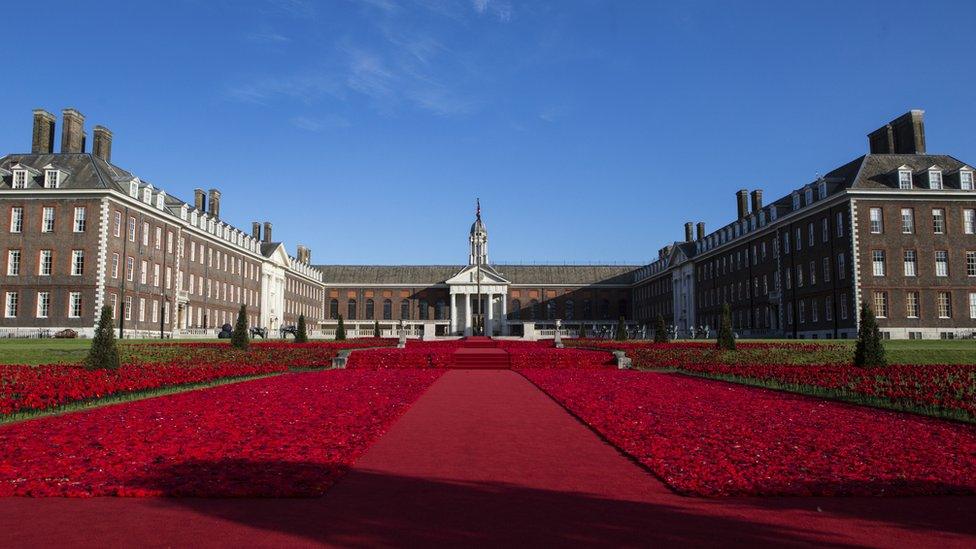
A field of almost 300,000 crocheted poppies has been created in tribute to those who have served in war
Also at the show is a 10ft (3m) high floral installation created by Veevers Carter for New Covent Garden Flower Market in honour of the Queen's 90th birthday.
Made up of 10,000 flowers, 112 buckets and 300m of ribbon, it forms a portrait of the monarch.
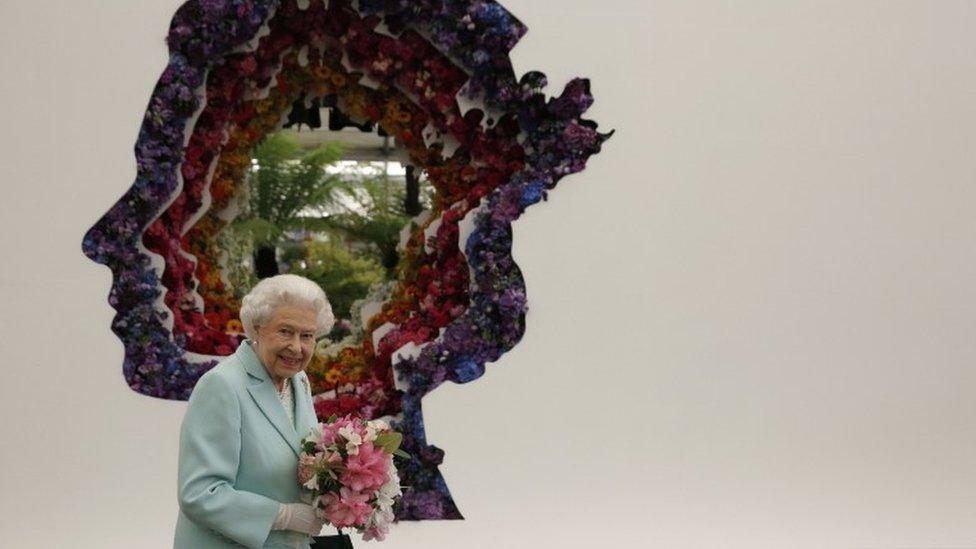
A giant portrait of the Queen has been created using flowers
The Queen and other members of the Royal Family, including the Duke and Duchess of Cambridge and Prince Harry, visited the show in the afternoon.
Many of the exhibits mark the Queen's 90th birthday, including a 21ft floral arch of at least 10,000 blooms and an exhibition of royal photographs at Chelsea dating back to 1949.
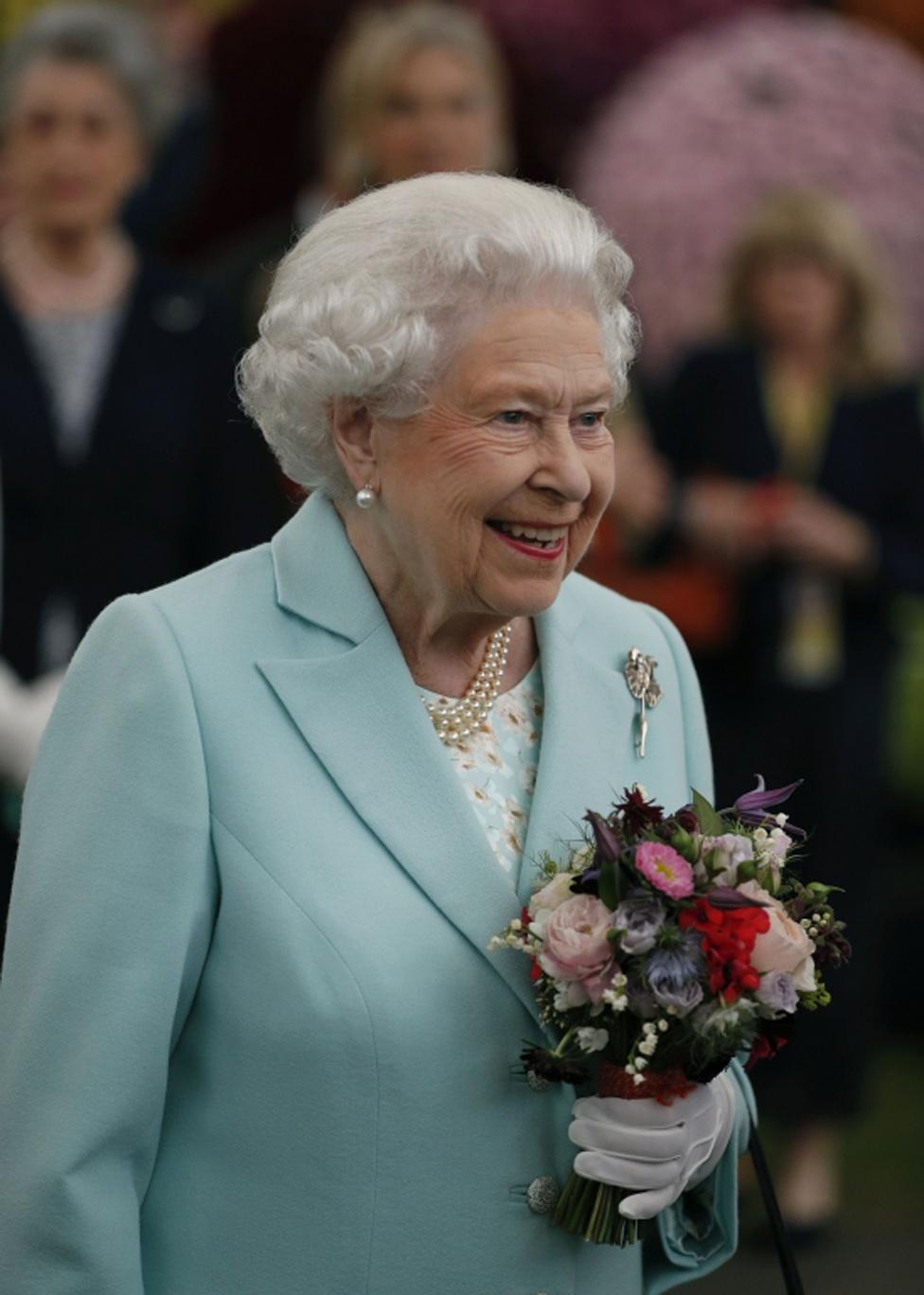
The Queen made a visit to the show